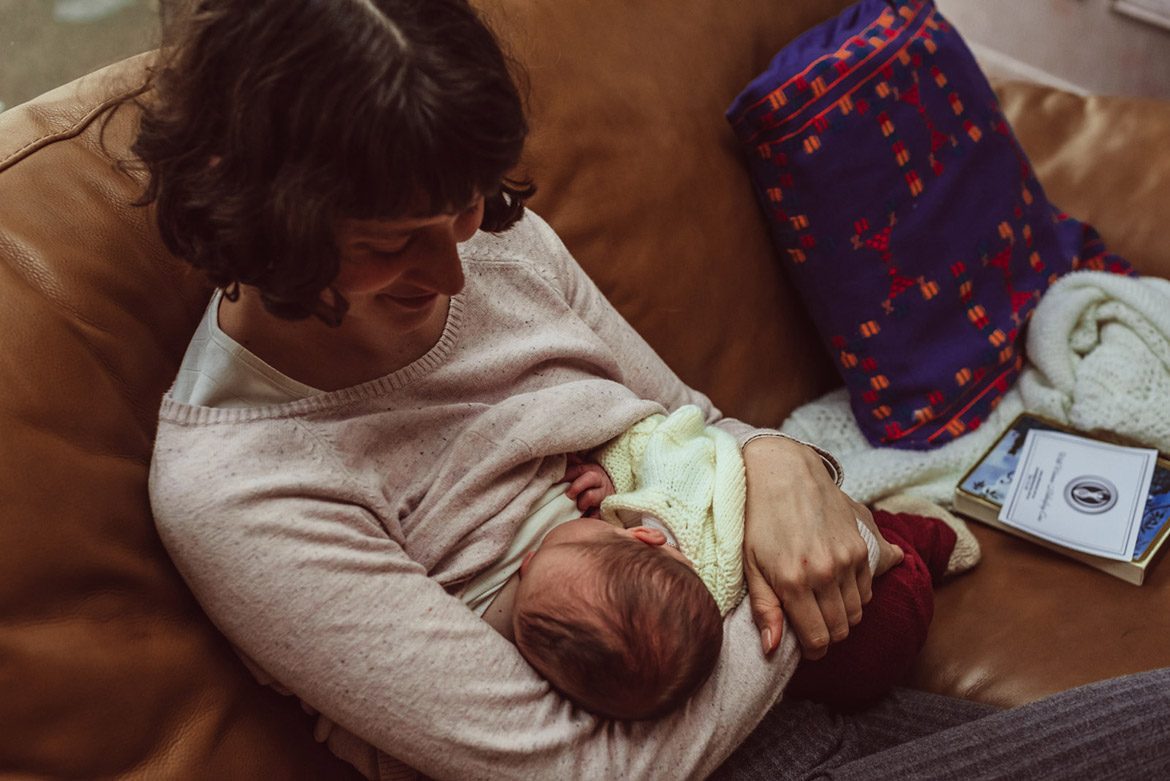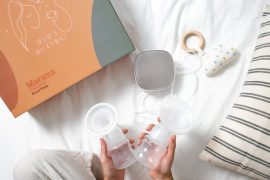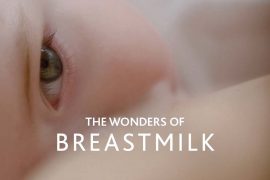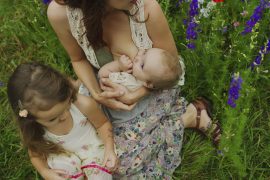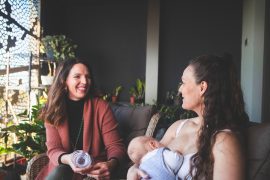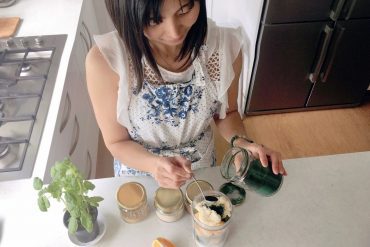By Jenny Thomas
What is a normal, term human infant supposed to do?
First of all, a human baby is supposed to be born vaginally. Yes, I know that doesn’t always happen, but we’re just going to talk ideal, normal for now. We are supposed to be born vaginally because we need good bacteria. Human babies are sterile, without bacteria, at birth. It’s no accident that we are born near the anus, an area that has lots of bacteria, most of which are good and necessary for normal gut health and development of the immune system. And the bacteria that are there are mum’s bacteria, bacteria that she can provide antibodies against if the bacteria there aren’t nice.
Then the baby is born and is supposed to go to mum. Right to her chest. The chest, right in between the breasts is the natural habitat of the newborn baby. (Fun fact: our cardiac output, how much blood we circulate in a given minute, is distributed to places that are important. Lots goes to the kidney every minute, like 10% or so, and 20% goes to your brain. In a new mum, 23% goes to her chest – more than her brain. The body thinks that place is important!)
That chest area gives heat. The baby has been using mum’s body for temperature regulation for ages. Why would they stop? With all that blood flow, it’s going to be warm. The baby can use mum to get warm. When I was in my residency, we would put a cold baby “under the warmer” which meant a heater thingy next to mum. Now, as I have matured, if a baby is “under the warmer,” the kid is under mum. I wouldn’t like that. I like the kids on top of mum, snuggled.
Now we have a brand new baby on the warmer. That child is not hungry. Bringing a hungry baby into the world is a bad plan. And really, if they were hungry, can you please explain to me why my kids sucked the life force out of me in those last few weeks of pregnancy? They better have been getting food, or well, that would have been annoying and painful for nothing.
Mum’s sweat smells like amniotic fluid, and that smell is on the child’s hands (because there’s been no bath yet!) and the baby uses that taste on their hand to follow mum’s smell.
Every species has instinctual behaviors that allow the little ones to grow up to be big ones and keep the species going. Our kids are born into the world needing protection. Protection from disease and from predators. Yes, predators. Our kids don’t know they’ve been born into a loving family in the 21st century – for all they know it’s the 2nd century and they are in a cave surrounded by tigers. Our instinctive behaviors as baby humans need to help us stay protected. Babies get both disease protection and tiger protection from being on mum’s chest. Presumably, we gave the baby some good bacteria when they arrived through the birth canal. That’s the first step in disease protection. The next step is getting colostrum.
A newborn baby on mum’s chest will pick their head up, lick their hands, maybe nuzzle mom, lick their hands and start to slide towards the breast. The kids have a preference for contrasts between light and dark, and for circles over other shapes. Think about that… there’s a dark circle not too far away.
Mum’s sweat smells like amniotic fluid, and that smell is on the child’s hands (because there’s been no bath yet!) and the baby uses that taste on their hand to follow mum’s smell. The secretions coming from the glands on the areola (that dark circle) smell familiar too and help the baby get to the breast to get the colostrum which is going to feed the good bacteria and keep them protected from infection. The kids can attach by themselves. Watch for yourself! And if you just need colostrum to feed bacteria and not yourself, well, there doesn’t have to be much. And there isn’t because the kids aren’t hungry and because breast milk is not food!
We’re talking normal babies. Breastfeeding is normal. It’s what babies are hardwired to do. 2019 or 209, the kids would all do the same thing: try to find the breast. Breastfeeding isn’t special sauce, a leg up or a magic potion. It’s not “best”. It’s normal. Just normal. Designed for the needs of a vulnerable human infant. And nothing else designed to replace it is normal.

